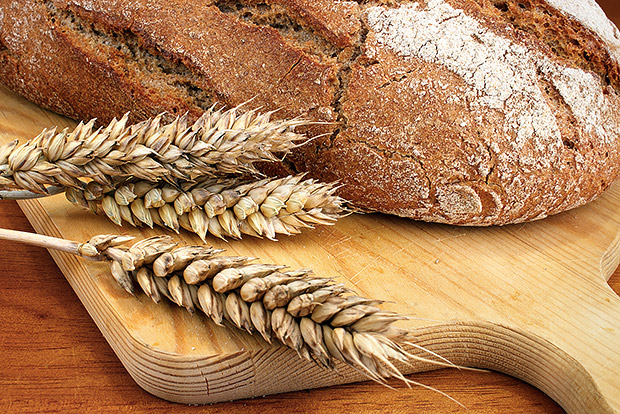
What is gluten?
Gluten is a protein naturally found in wheat, rye, and barley. Gluten provides elasticity to dough, helping baked goods rise and hold shape while giving them a chewy texture. Gluten is also used to make vegetarian meat substitutes, such as seitan.
Who should avoid gluten?
There are medical conditions that require some people to avoid gluten for long-term nutrition and health.
Celiac disease: It’s estimated that about 1% of the population has celiac disease, a gluten intolerance and intestinal disorder. When those with the disease eat gluten, they produce antibodies that damage the lining of the small intestines, reducing the absorption of nutrients. Symptoms include abdominal pain, bloating, diarrhea, skin rashes, fatigue, and joint pain. The malnutrition caused by celiac disease can lead to serious issues such as osteoporosis and infertility. Eliminating gluten allows the small intestines to heal and properly absorb nutrients.
Gluten sensitivity: Non-celiac gluten intolerance (NCGI), also called gluten sensitivity, is a newly recognized condition. As a result, there is still debate regarding how to diagnose it. People with gluten sensitivity experience some of the same symptoms as those with celiac disease, but there is no damage to the small intestines and a lesser risk for malnutrition. Some find relief by eliminating gluten from the diet, others can still tolerate it in small amounts.
What foods contain gluten?
Wheat, rye, and barley contain gluten. Grains related to wheat, such as bulgur, durum, spelt, and Kamut, also contain gluten. While pure oats are gluten-free, they are often processed with other grains causing cross-contamination. Other products that may include gluten are malt vinegar, beer, baked goods, candy, salad dressings, soy sauce, packaged foods, and soups.
Will a gluten-free diet help me lose weight?
There is no research to support that a gluten-free diet alone promotes weight loss for people without celiac disease or gluten sensitivity. Many people who lose weight after trying a gluten-free diet can contribute this loss to changes in lifestyle. For example, identifying gluten-free foods increases nutrition awareness and can lead to healthier food choices, such as increased fruit and vegetable intake. If you experience fatigue, eliminating gluten may increase your energy level and cause you to exercise more often.
If you load up on packaged gluten-free foods, such as bread, crackers, and cookies, there is a good chance you will gain weight on a gluten-free diet. These foods often contain more calories than the original versions.
Weight gain may also occur for those with celiac disease who switch to a gluten-free diet. One research study showed that after 2 years, 81% of patients following the diet gained weight. Researchers feel that this is related to a healing of the intestine and proper absorption of nutrients.
How do I know if I should stop eating gluten?
If you experience any symptoms related to celiac disease, doctors urge that you get tested before you try a gluten-free diet. If you do have celiac disease and you remove gluten, the antibodies that show up in testing will no longer be present. For diagnosis, you will need to begin eating gluten again and suffer the symptoms. Diagnosis may seem unimportant if you find the diet works for you, but celiac disease is a genetic disorder. It’s important to identify it and inform your family members who may also be suffering from its effects.
Are there risks with eating gluten-free?
Foods with gluten often contain iron, calcium, thiamin, riboflavin, niacin, folate, vitamin B12, vitamin D, and magnesium. If you regularly eat whole grains, they can also be a major source of fiber. Cutting out foods with these nutrients can have health consequences. It becomes increasingly important to select gluten-free foods that also supply these nutrients such as dark leafy greens, fruits, beans, lean meats, or dairy products.
What can I eat if I don't eat gluten?
If you require a gluten-free diet, at first the options may seem dismal. The good news is that many food labels now list if a product contains gluten. But don’t fall into the trap of eating high-calorie processed foods. Stick with fresh, gluten-free foods and minimally processed packaged items. The Mayo Clinic lists several gluten-free grains for cooking and baking, such as corn, millet, quinoa, rice, and sorghum. Fruits and vegetables are naturally gluten-free as well as most dairy products, beans, unprocessed nuts, and unprocessed meats without breading.



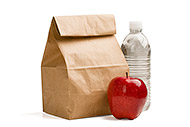 3 Healthy Lunches for Your Work Week
3 Healthy Lunches for Your Work Week
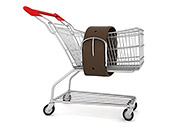 5 Tips for Stretching Your Budget for Healthy Food
5 Tips for Stretching Your Budget for Healthy Food
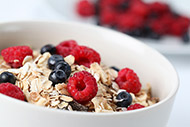 Best Ways to Reduce Added Sugar
Best Ways to Reduce Added Sugar
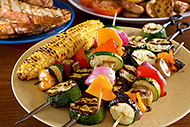 Healthy Tips to Lighten Up Picnic Foods
Healthy Tips to Lighten Up Picnic Foods
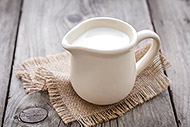 Do You Need to Drink Milk?
Do You Need to Drink Milk?
 Tips to Keep Track of Water Intake
Tips to Keep Track of Water Intake
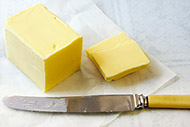 Butter vs. Margarine: What’s the Best Choice?
Butter vs. Margarine: What’s the Best Choice?
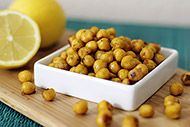 7 Good Mood Foods
7 Good Mood Foods

 Pinterest
Pinterest RSS Feed
RSS Feed